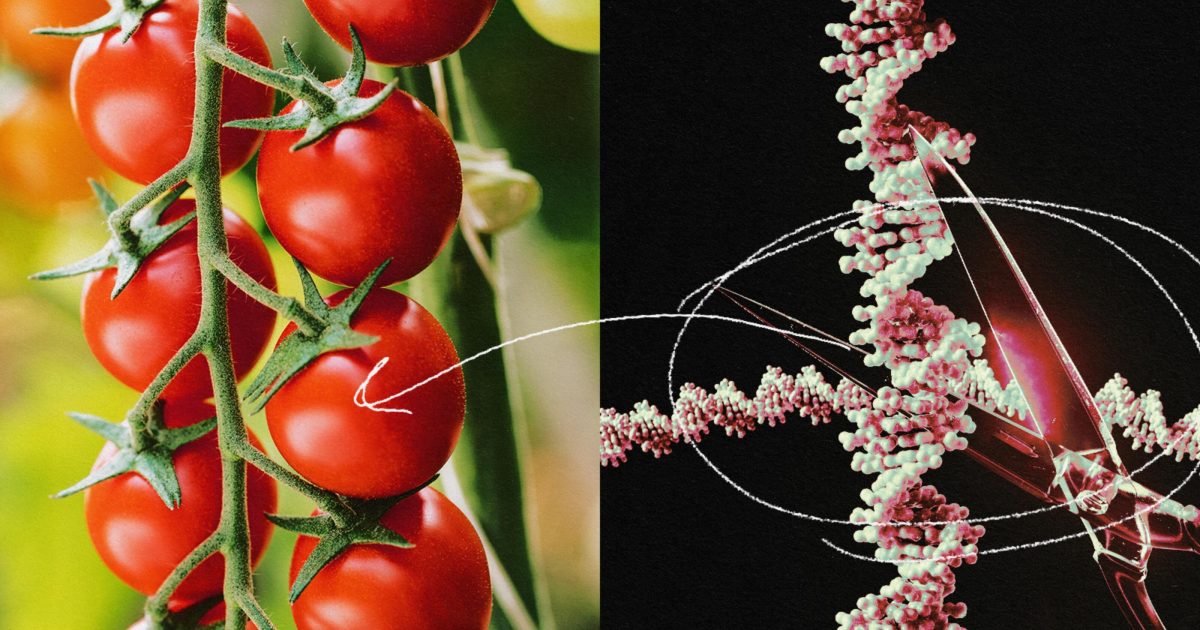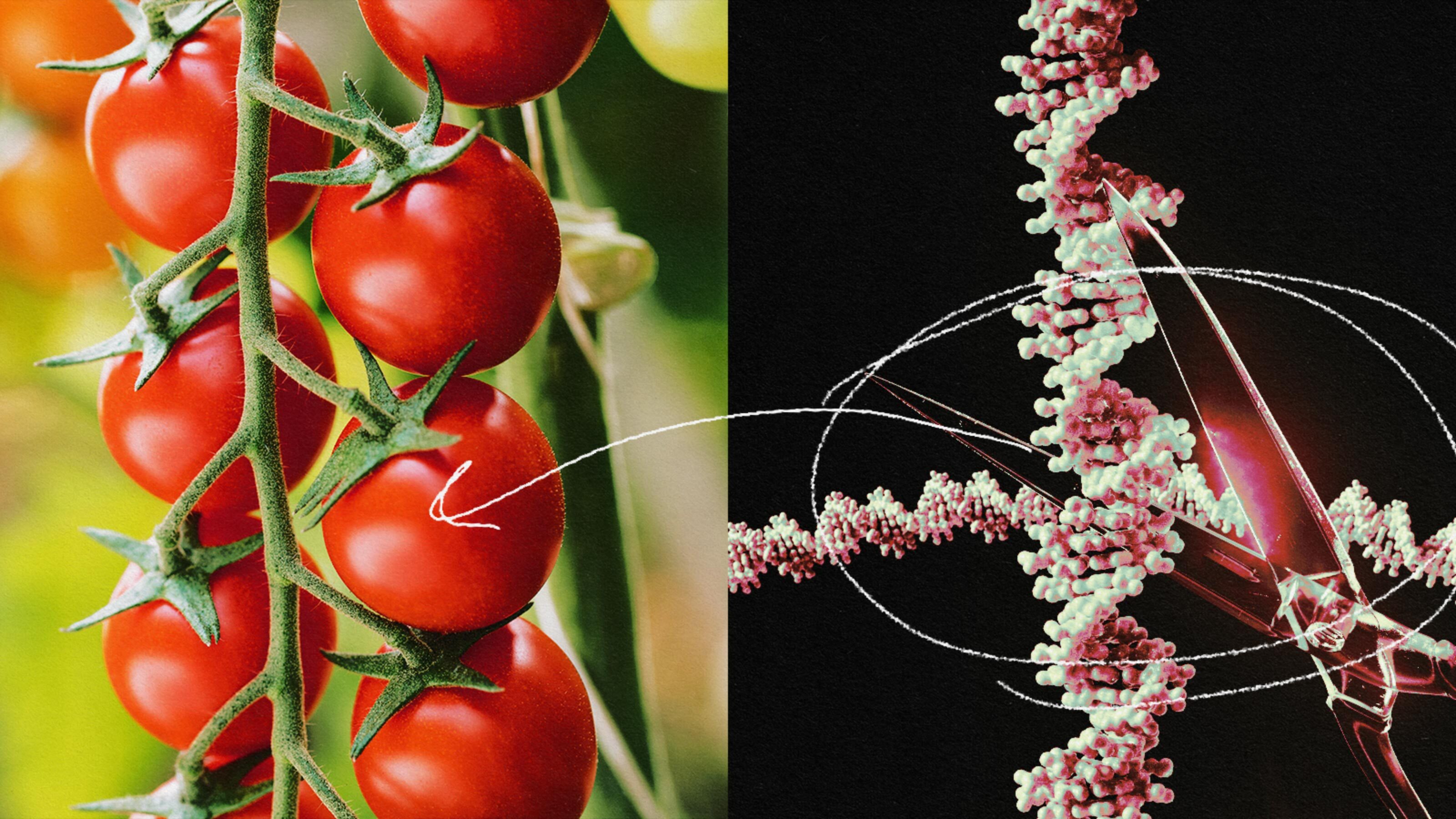
New CRISPR tomatoes need less watering
Gene-edited tomatoes that can grow with less water could help solve the problem of feeding a world battling increased water scarcity.
New CRISPR tomatoes need less watering
Knocking out one gene was all it took to make tomatoes lose less water but grow just as big.
Adobe Stock / Freethink / Jacob Hege
By Kristin Houser
February 4, 2024
Fields
AGRICULTURE
CRISPR
By editing a single gene in a tomato plant, researchers have found a way to get it to grow with less water — and they think their gene-edited tomatoes could lead to other types of water-efficient crops in the future, too.
The challenge: Plants only use a small percentage of the water they take in through their roots. The rest evaporates into the atmosphere through small holes on their leaves, called “stomata.”
When they need to conserve water, plants can close these holes, but stomata also let in carbon dioxide (CO2), which plants convert into sugar through photosynthesis. That sugar fuels their growth, so less CO2 means a plant can’t grow as large as normal.
The gene-edited tomatoes were able to conserve water without compromising the number or quality of tomatoes.
Gene-edited tomatoes: Researchers at Tel Aviv University (TAU) discovered that using CRISPR to delete the gene that codes for the protein ROP9 causes a tomato plant’s stomata to partially close at midday, when water evaporation is most likely.
The stomata remain open in the morning and afternoon, though, which means the plants can conserve more water, while still intaking enough CO2.
In field tests, the researchers grew their gene-edited tomatoes under regular water conditions and ones meant to simulate droughts and discovered that the plants were able to conserve water without compromising the number or quality of tomatoes.
Looking ahead: It’s too soon to say whether the TAU team’s gene-edited tomatoes will ever make their way into the global food chain, but the researchers believe their discovery has the potential to lead to a wide variety of water-efficient crops.
“There is great similarity between the ROP9 in tomatoes and ROP proteins found in other crop plants such as pepper, eggplant and wheat,” said researcher Nir Sade. “Therefore, the discoveries detailed in our article could form the basis for the development of additional crop plants with enhanced water use efficiency.”
Innovations like this could be essential to ensuring a sustainable future for agriculture.
The big picture: Water scarcity is a major challenge worldwide today, and a growing population combined with rising temperatures, increasing droughts, and other effects of climate change will make water conservation even more crucial in the future.
Innovations like this could be essential to ensuring a sustainable future for agriculture and water usage more generally.
We’d love to hear from you! If you have a comment about this article or if you have a tip for a future Freethink story, please email us at tips@freethink.com.
Last edited:
 TOMATOES! TOMATOES!
TOMATOES! TOMATOES!